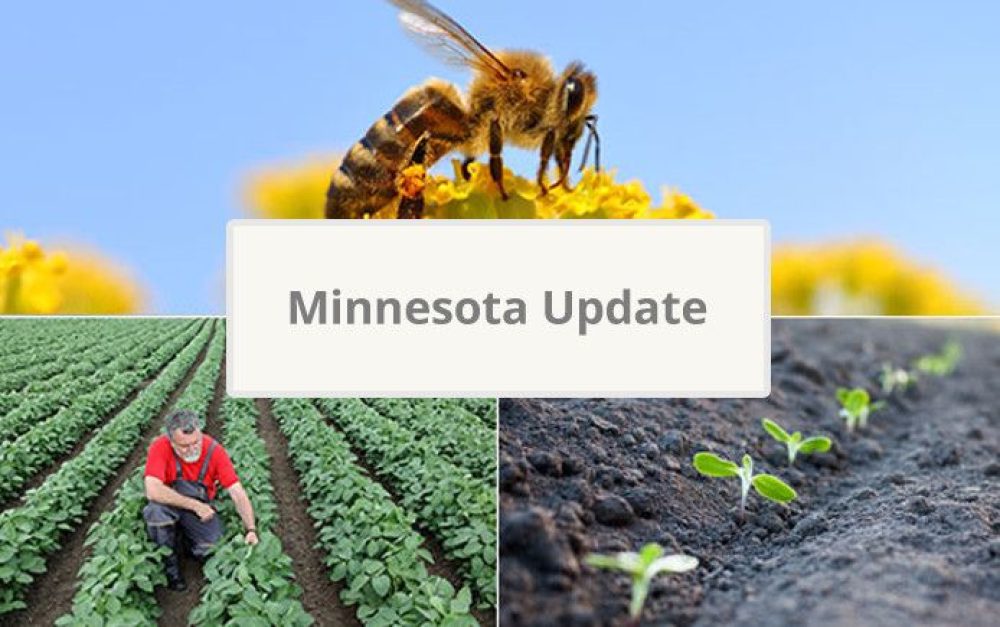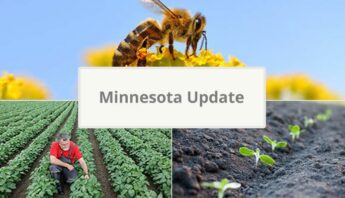As Minnesota is one of the states in which PAN does on-the-ground campaign work, we send out regular updates on PAN and partners’ work in Minnesota and beyond — from pesticide-related science to opportunities to take action. If you’d like to receive these updates via email, sign up here.
State updates
DNR rules that potato expansion can proceed: Earlier this month, the Minnesota Department of Natural Resources (DNR) made a disappointing announcement. After completing an initial environmental assessment for the latest property in the Pineland Sands agriculture expansion in north-central Minnesota, the agency concluded that environmental effects are “minimal in nature” so they won’t be requiring a more in-depth Environmental Impact Statement. This decision ignores a mountain of evidence on the environmental and human health risks posed by the expansion, and we are immensely disappointed in DNR. Although industrial potato producer R.D. Offut (RDO) is working hard to distance their brand from the project (the Nolte Family Farm Irrigation Project), community members know that the project is part of RDO’s strategy to slowly “trickle through” irrigation well permits to avoid any environmental review or regulation. Despite the weight of evidence provided by community members during the expansion’s comment period, DNR has decided to look the other way.
PAN has been working on this issue for years — alongside leaders on the frontlines from the Toxic Taters coalition and White Earth Land Recovery Project. We know it will take persistence to counter the power of industrial ag giants like RDO, but we also know that Minnesota communities are tired of an endless expansion that puts neighbors and land at risk and violates treaty rights. Stay tuned for updates as this fight continues.
Let’s not forget, it’s drift season: It’s the time of year when the sound of an aircraft overhead puts folks in a state of panic. Pesticide drift is a common threat in the summer for a lot of Minnesotans — and it’s totally unacceptable. If you are experiencing pesticide drift or are concerned about what to do if you’re drifted on, check out our In Case of Drift toolkit, updated for this year. And always feel free to reach out if you need help navigating incident reporting or symptoms, someone to strategize with, or just someone to talk to.
Nationwide updates
Monsanto pays up: Bayer, following its 2018 acquisition of Monsanto, will pay up to $10.9 billion to settle nearly 100,000 individual lawsuits alleging that exposure to the glyphosate-based herbicide Roundup has caused cancer. The World Health Organization (WHO) classified glyphosate as a probable human carcinogen in 2015. Since WHO’s announcement, thousands who were exposed to Roundup and subsequently diagnosed with cancer have filed suit against Monsanto.
This settlement is yet another landmark moment that signals a turning tide against agrichemical giants like Bayer. For too long, mega-corporations have profited from toxic pesticides, obscured the risks associated with them, and avoided taking responsibility for the damages they have caused. Though these rulings are undoubtedly good news for plaintiffs, we know it’s not enough. These legal proceedings are a band-aid on a broken regulatory system. Read more here.
Have you been harmed by Roundup? PAN is taking legal action against EPA for ignoring the impacts of glyphosate and keeping Roundup on the market. If you’ve experienced damage to your health, crops or bees from Roundup exposure and are willing to submit a statement, please let us know!
Upcoming Events
How to change the new world: biodiversity, climate change and human health
Join Pollinator Friendly Alliance, Pesticide Action Network, Xerces Society, and Wild Ones St. Croix Oak Savanna for a webinar on the links between COVID-19, climate change, and biodiversity.
- July 20, 12:30PM and July 27, 6:30PM
- Webinar link here
Home Composting
Join the Ramsey County Master Gardeners for an online class on home composting.
- July 23, 7PM – 8:30PM
- Register here
Take action
Monsanto has petitioned the U.S. Department of Agriculture to approve a new GE corn seed engineered to tolerate applications of not just one or two chemicals, but five — dicamba, glufosinate, quizalofop, 2,4-D and glyphosate. We know who would benefit from this new seed — and it’s not farmers.
We’re teaming up with our friends at the National Family Farm Coalition and Friends of the Earth to deliver comments to USDA in advance of their July 7 deadline. Urge USDA to reject Monsanto’s petition to approve this seed, today.








